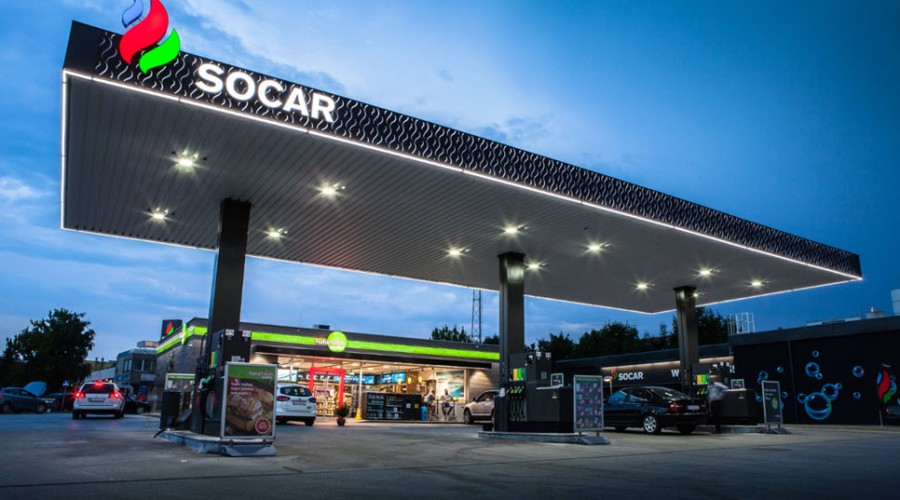SOCAR delivered fuel from Azerbaijan to Ukraine through the territory of Bulgaria for the first time

The first supply of SOCAR fuel was made to Ukraine from Azerbaijan via Bulgaria, and there were also supplies from Italy. Qazet.az reports with reference to "Report" that Igor Orlov, director of the retail business of "SOCAR Energy Ukraine", a subsidiary of the State Oil Company of Azerbaijan (SOCAR) in Ukraine, said this in an interview with the Ukrainian publication. "Many people think that SOCAR supplies fuel from Azerbaijan. However, this is not the case - the delivery is very expensive. Our supplier was from the Orlen company. We have been cooperating with this company since the first day SOCAR started working in Ukraine. Due to the lack of sufficient fuel volumes in Europe, we were forced to look for alternatives. "I. Orlov said. Speaking about the measures taken regarding the fuel crisis, he said that Europe is not ready for such a large supply of fuel. "With the start of the invasion of Ukraine by Russia, the supply from Belarus, where most of the fuel was delivered to Ukraine, was cut off. There were no other channels, and the sea was also closed. Everyone turned to Europe, and the fuel there is much less than what a warring country needs. High temperature (+35 degrees Celsius) did not allow the transportation and emptying of fuel tanks. All this led to the delay in bringing fuel to gas stations," I. Orlov noted. According to him, the most difficult time was when the whole market was faced with shortages and restructuring of logistics: "We did not expect that the ports would not work, which created certain difficulties. We had such a system: according to our contractual obligations, there had to be fuel, which companies already bought from us at that time to support their work. This includes retail, logistics and other large customers. We also had to find fuel for the State Emergency Service of Ukraine and doctors. Of course, we also kept volumes for individuals who had to leave the cities. Now we can say that we have prepared well enough and with proper planning we have been able to fulfill our obligation with the correct limits that we have prepared daily for each gas station, we have helped the state and we have provided fuel to guests who need urgent fuel." I. Orlov added that after the first firing of oil depots, the task was to deliver fuel to gas stations and tanks there as much as possible: "It is not safe to constantly transport fuel or store it in a fuel truck. For this reason, we "fueled" our gas stations to the maximum. At that time, there was already an active demand for fuel. In addition to retail sales, we had to fulfill our obligations to our corporate customers who had large contracts with us. We stored gasoline and diesel fuel in their tanks." I. Orlov noted that it was a little easier for the company in terms of fuel supply: "Because, unlike many market players, all our partners were international. We have not taken anything from the Kremenchug refinery because the Kremenchug Oil Refinery, which was Ukraine's only major fuel producer before the war, is out of business because it was destroyed by missile strikes. We imported only A-92 gasoline from Belarus. However, this type of fuel occupies a small place in the structure of our sales. It is no secret that most of the fuel supply is carried out by sea. In this regard, we did not estimate that the port might not work. However, thanks to the team, we were able to quickly reorganize the logistics. Yes, it was unusual, we had to bring fuel with our own and rented car carriers and wagons. But during the invasion, we were saved by having a lot of fuel in the oil depots. Somewhere until the end of March, we were selling "fossil fuel". However, at 5 am on February 24, the flow of people was so great that sales on that day equaled the weekly volume before the occupation. This takes into account natural factors such as limits on the amount of fuel in one tank, the number of filling 'guns' and queues, among other things." It should be noted that SOCAR's representative office in Ukraine was opened in 2008. In 2009, the company bought about 20 gas stations of the "Tala-Neft" network in Odessa and Nikolayev regions, as well as the large "Rassvet" oil storage in Odessa region. In 2010-2011, ONIO, which has four gas stations in Kyiv and the region, and GFC in Lviv region controlled gas filling networks. In August 2012, SOCAR received permission from the Antimonopoly Committee of Ukraine to purchase 26 gas stations and one oil depot belonging to the Kalina group. The network operates 57 gas stations in Ukraine, including two oil tankers, "Baku-1" in Kyiv and "Ganja" in Odessa. Since the end of 2016, the company has been engaged in natural gas trading in Ukraine. Currently, "SOCAR Energy Ukraine" has 57 gas stations in Ukraine.
